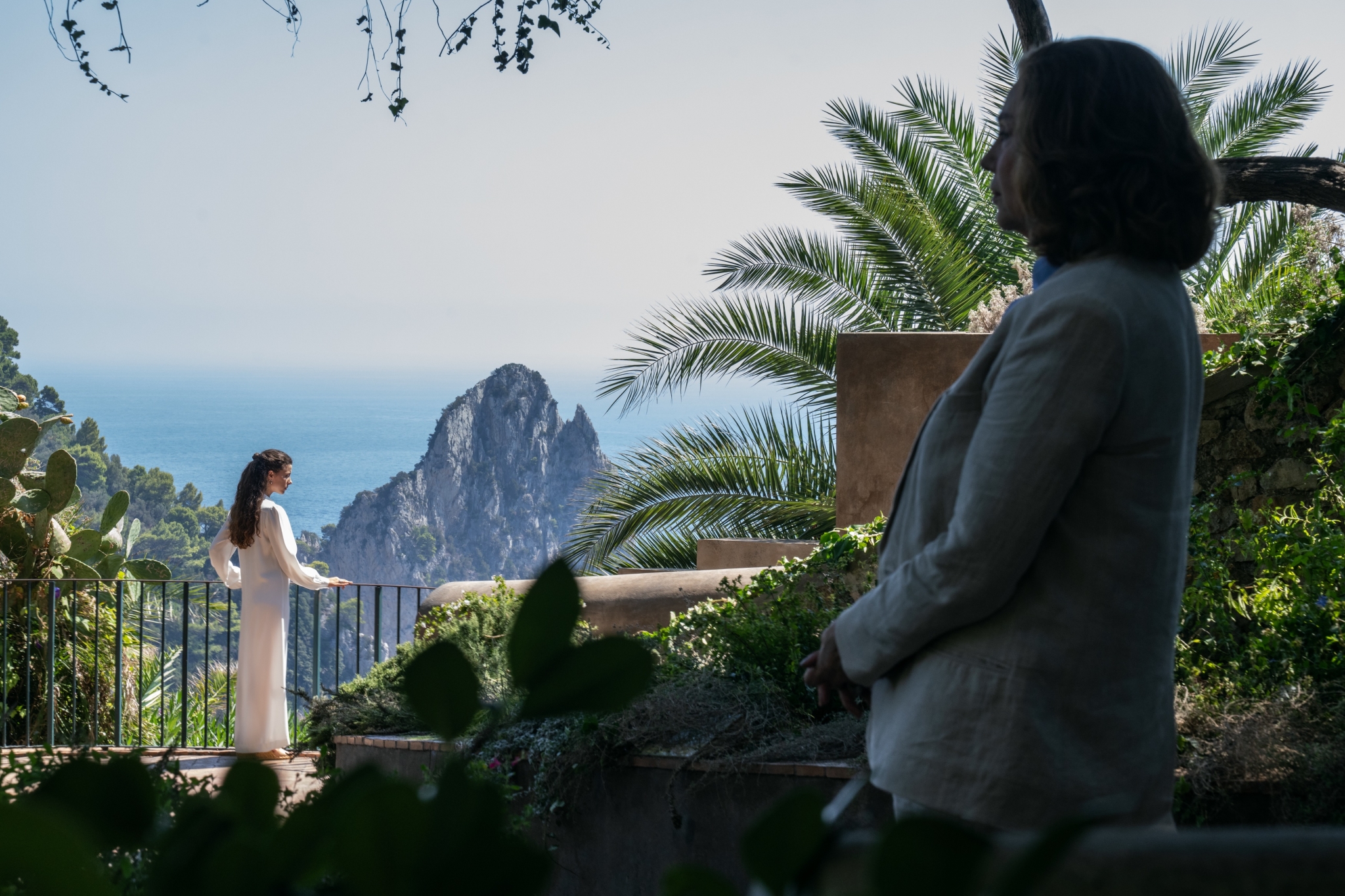
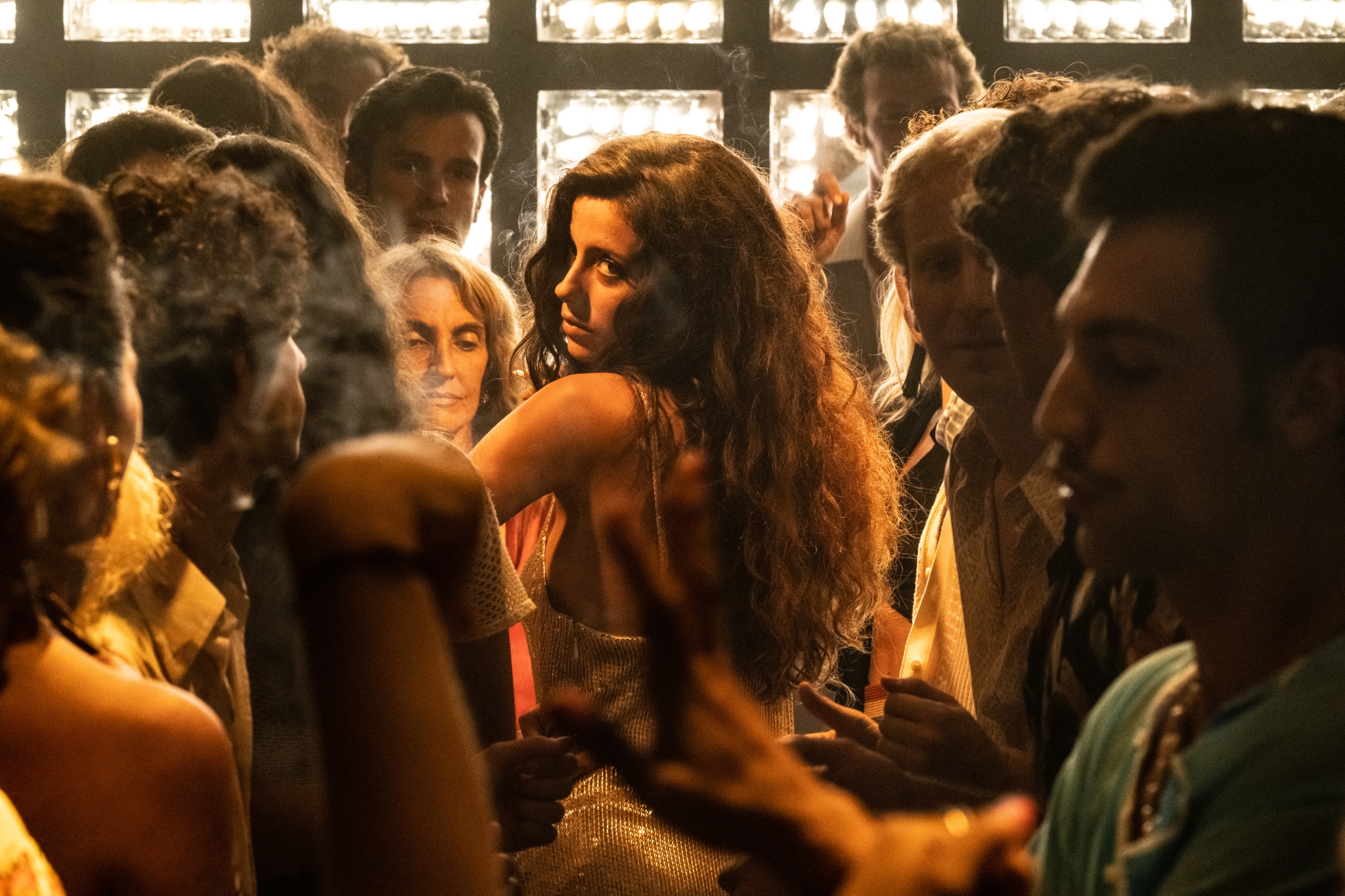
A picaresque tale about beauty, profanity and love, Parthenope is Paolo Sorrentino’s first film helmed by a woman. Its breakout star Celeste Dalla Porta explains how she took on the monumental role.
Celeste Dalla Porta’s origin story is somewhat providential. She was on a beach holiday in Naples with friends when, at the same time, director Paolo Sorrentino was in his native city filming film Hand of God, a 2021 feature about a teenage boy saved from a freak accident by Diego Maradona. The casting directors approached Dalla Porta and her friends to be extras. The scene was left on the cutting room floor, but it turned a bright switch on in Dalla Porta’s mind. “I sent a desire to the universe, and the desire was I would like, with all my heart, to be on a set again, with a major role.”
Cut to Cannes Film Festival in 2024 and the première of Parthenope, which saw Dalla Porta, 27, in the eponymous role, emerging from the waters of Naples—bronzed and bikini-clad, an image of ineffable beauty and youth. Parthenope is a picaresque tale of a young woman who breaks many hearts as she works out her true purpose in life. The stark contrast—from playing an extra in a cut scene to this announcement of a modern Venus, Sorrentino’s first female lead role—is not lost on Dalla Porta. She must have been like, what the hell? I ask her. “I was like, what the hell!” she responds, her ‘double Ls’ resonating emphatically.
The path to Parthenope was not a straight line. It was not, at first, clear that she was up for the main part. “Sorrentino only told me that I was Parthenope after a long period of auditions,” says Dalla Porta, who is talking to me from Rome, holding a vape, has her brown hair billowing in pre-natural curls. “I was also la spalla of other characters” she notes. During our interview Dalla Porta occasionally breaks into Italian, her bespectacled interpreter, Sabri, on-hand to help with the odd translation. She was a stand-in to read with other characters. “I was always there, so when they told me I was Parthenope, in a certain way I knew it already, but if it isn’t confirmed, you can’t be sure.” I ask if Sorrentino was playing with Dalla Porta, who is quick to disagree. “I think he was very combatutto.” Conflicted. “He was really listening to himself, to understand if I was right to get this responsibility. To stay for three months on a set of that quality and pretense. When they ultimately called me, even I was confused.”
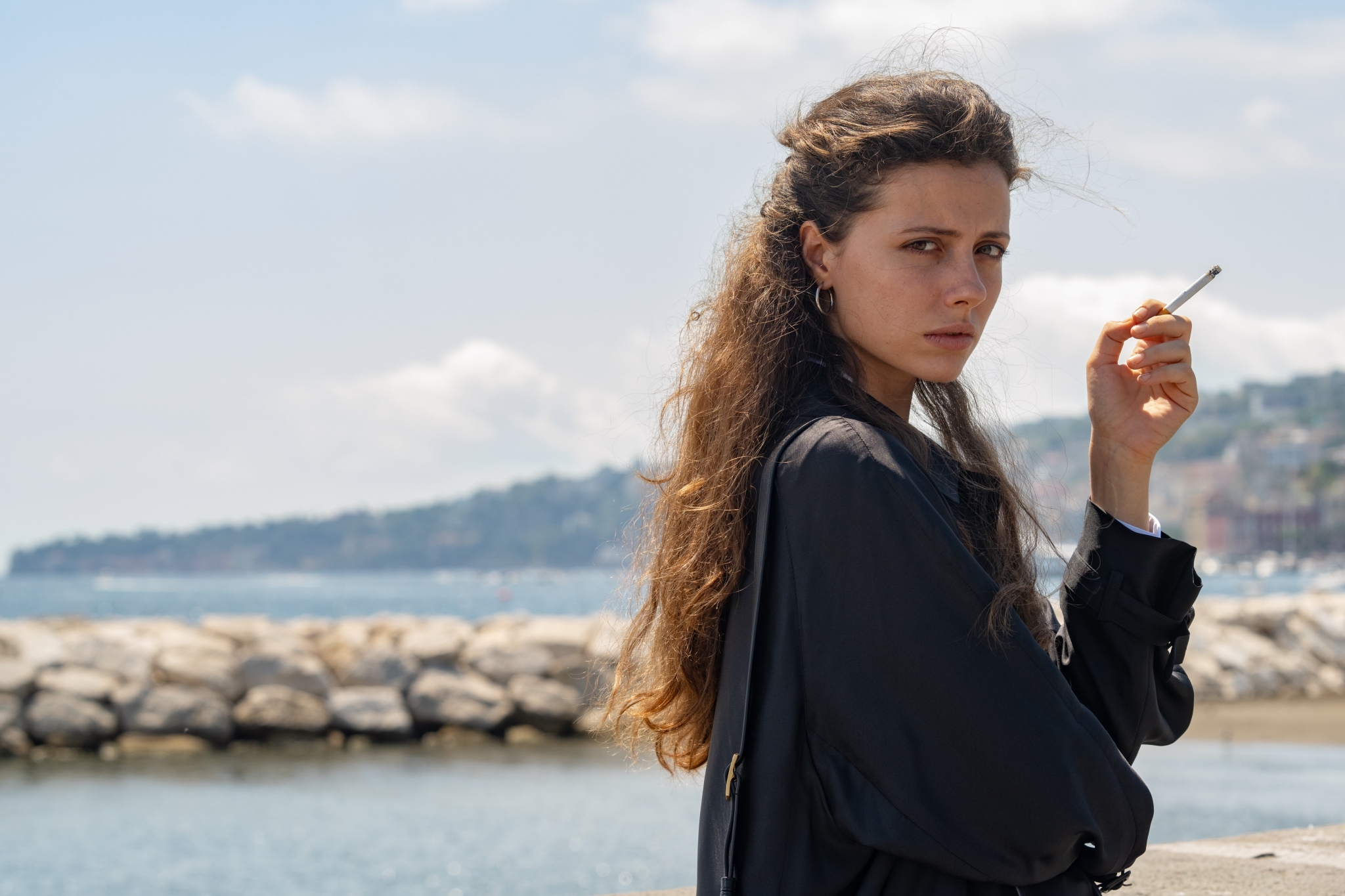
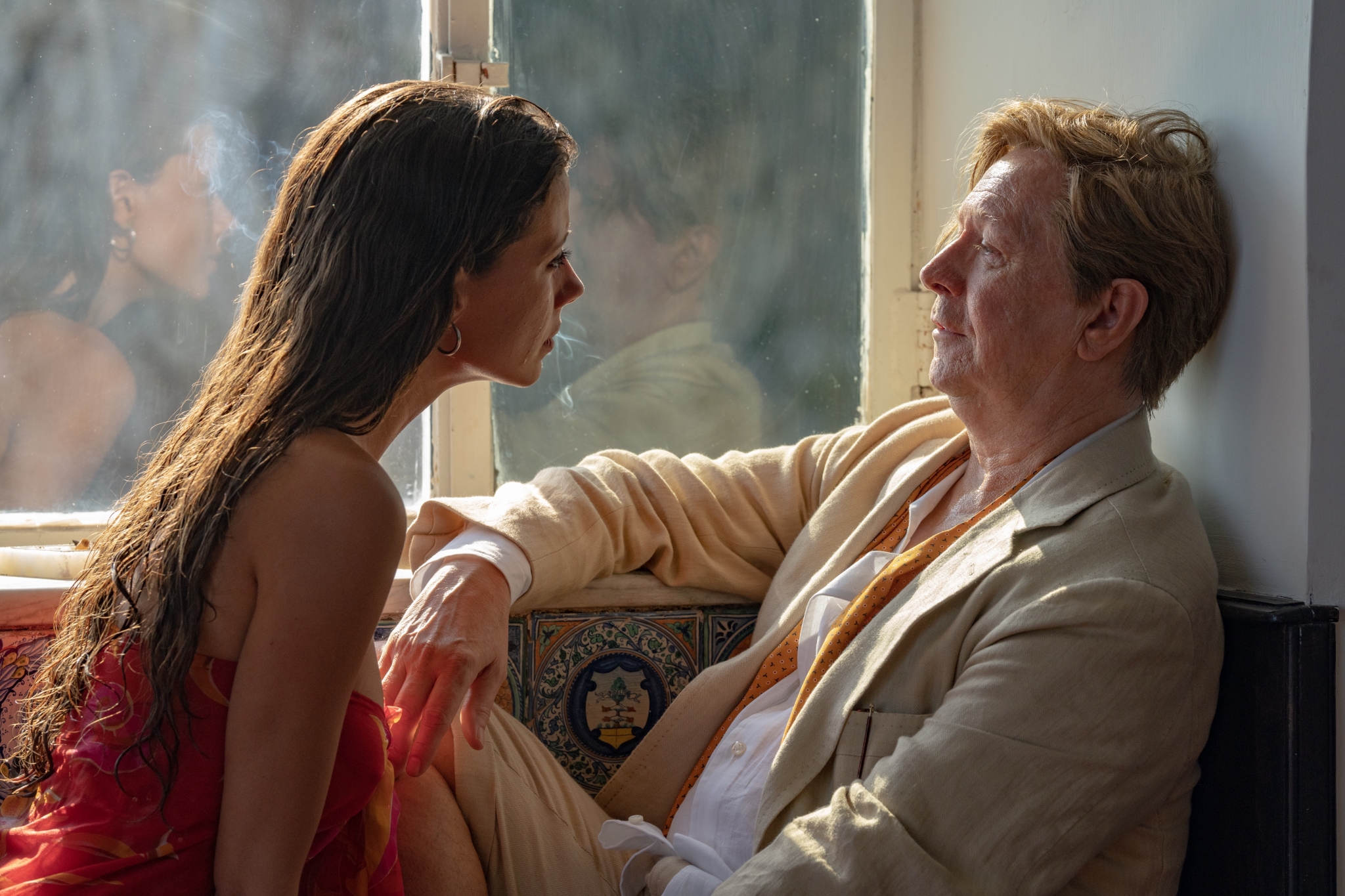

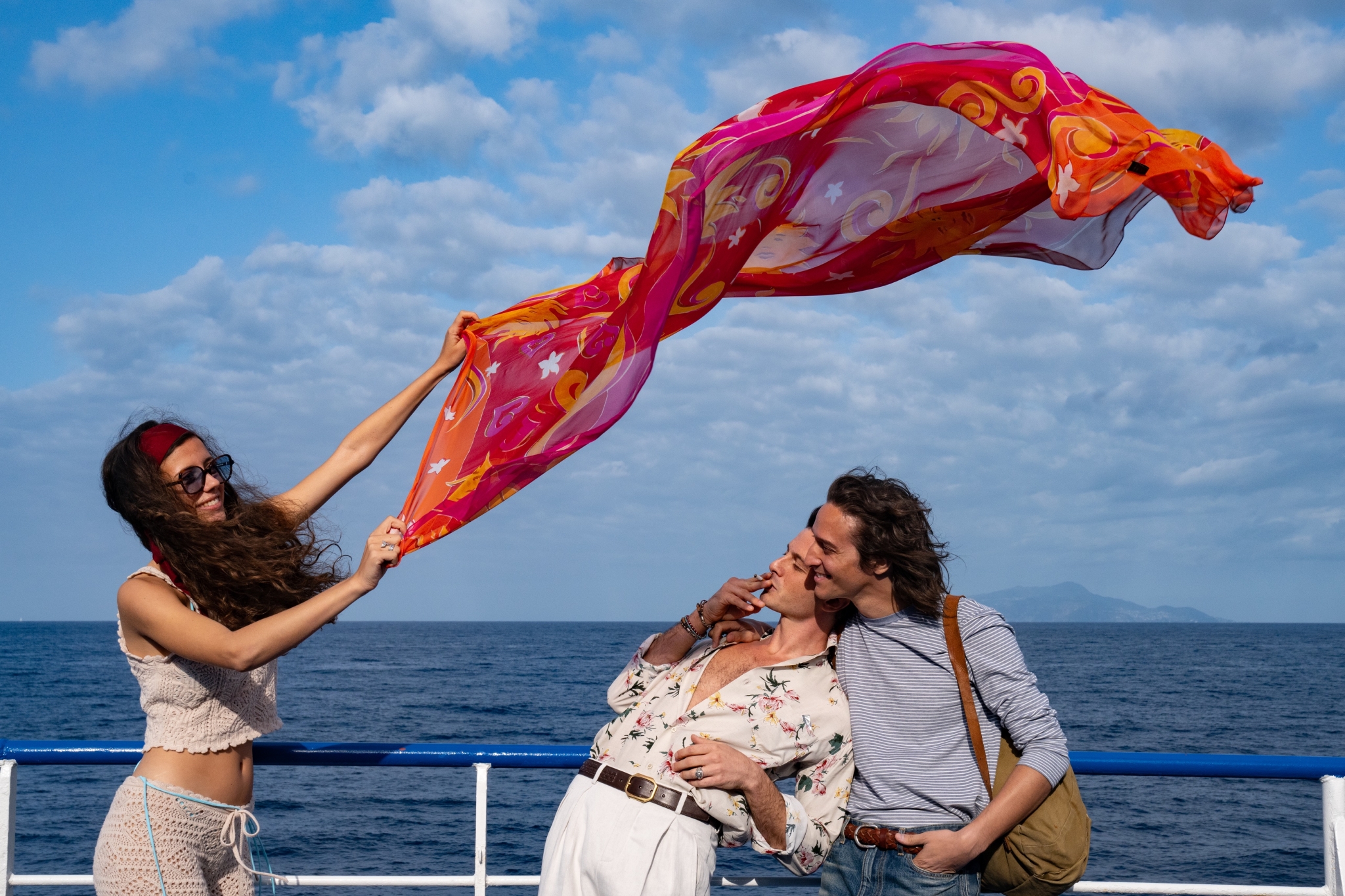
Parthenope—which clocks in at 137 minutes—is trademark Sorrentino: a single character-led feature set in Italy, ambulating but epic, filled with dream logic, flights of fantasy, cheeky humour and very good style (this is one of Saint Laurent Productions first three titles, along with Jacques Audiard’s Emilia Perez and David Cronenberg’s The Shrouds). One main difference with Parthenope, however, is that it’s Sorrentino’s first film to tell the story of a… woman. Our eponymous protagonist, who we meet as an 18 year-old student studying Anthropology, travels to Capri and flirts with acting (and many people), before pursuing her academic career. Yet the film is as much about the plight of the men around her respond as her own story. “Are you aware of the beauty your disruption causes?,” says a fictionalised John Cheever (played by Gary Oldman) as a helicopter of a suitor hovers above a hotel they are dining in. “I’m starting to suspect something,” she responds.
I ask Dalla Porta if she had such a moment of coming-into-consciousness, of realising the potential hazards of beauty. “It’s not really about beauty, but an energy,” she says, recalling the summer she turned 19. “I was for a moment Parthenope. I was very in love with life. I was curious about other people and how to seduce them. But not sex, or in a sexual way, just to play with them. It’s an energy of when you are young and free. That love for life, and you want to be a woman. I felt it.” She doesn’t, however, believe she herself was a muse for Sorrentino. “I know that Parthenope, the character, is a muse. So to embody her character I also had to embody the imagination of a muse, her energy, her atmosphere. She’s a muse for all the characters, the director and myself. I was in love with her.”
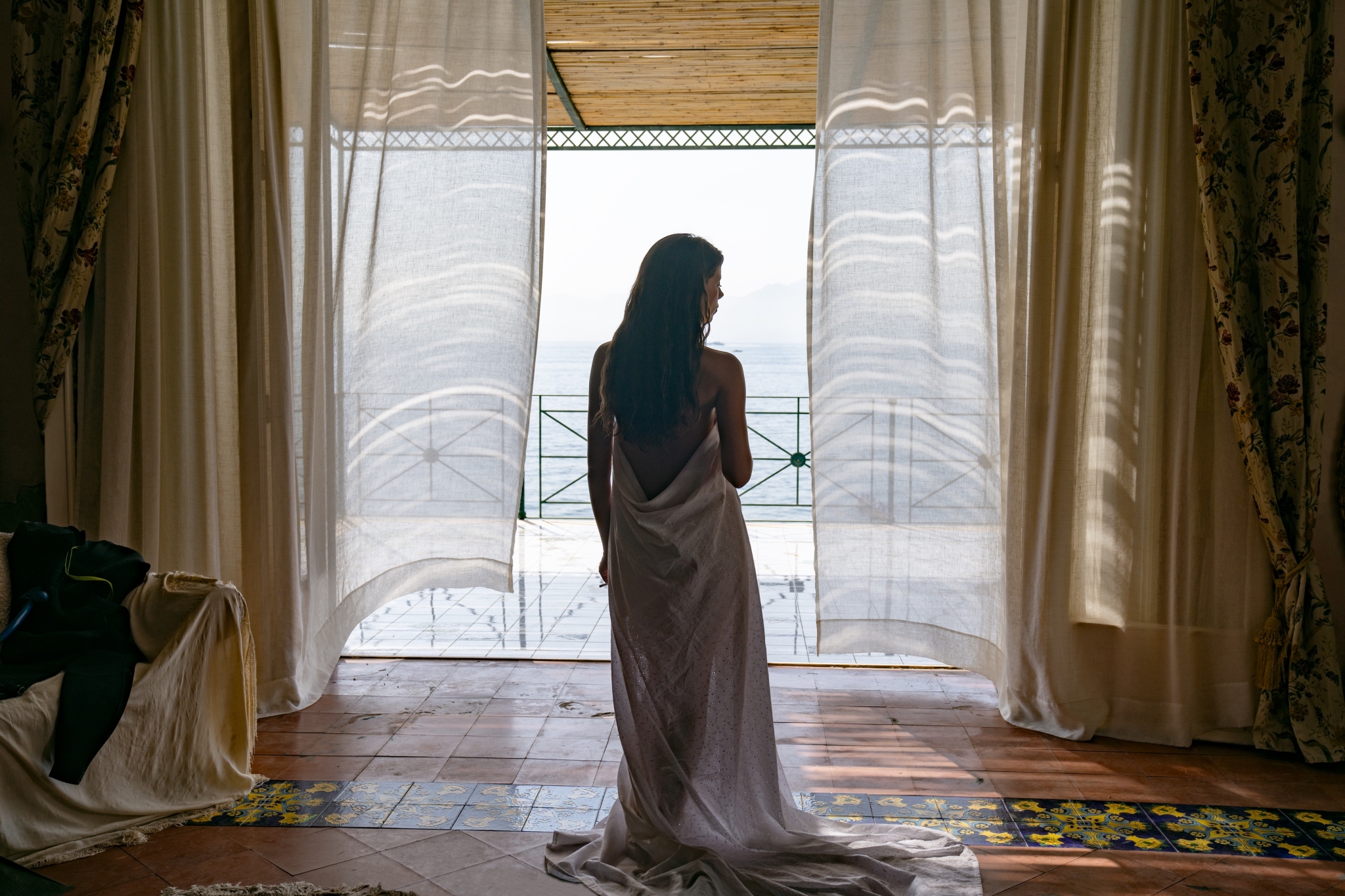
To embody her character I also had to embody the imagination of a muse, her energy, her atmosphere. She’s a muse for all the characters, the director and myself.
Celeste Dalla Porta
The taciturn Parthenope, who “knows how to keep her secrets inside her” is a foil for Dalla Porta, who describes herself as an oversharer. Yet their affinity to the beautiful, in an abstract sense, is something that Dalla Porta shares with her character. Born on Christmas Eve, 1997, the actor grew up in a culturally-minded Milanese family. Her grandfather was Ugo Mulas, a major figure in Italian photography who is famous for his street images of the Venice Biennale and documenting the 1960s Pop art scene in New York. Her mother is also a photographer, her father is a musician and her brother is both a musician and a photographer. “I am a very lucky girl,” she smiles. “I grew up with a sense of harmony and musicality. Even though I’m not like them because I’m in front of the camera, I chose the other side of the image.” Becoming an actor Dalla Porta describes as a “natural decision.” “The idea of being another person, to live so many lives—that’s something incredible. I always have this feeling that, oh my God, I only have one life. But it’s not enough to live all the emotions and all the characters and all the identities that I want to live. Cinema can give you this.”
Naples is its own emotion in Parthenope, and visiting the city was key for the actor to unlock her character. “It is a very mysterious city, and very feminine. You feel women there. You feel freedom. You also feel the church, not like the church in Rome. It’s sacro e profane.” Sacred and profane. “You can never catch it, you never know what you will see today and tomorrow. It always changes, it’s always different.” Parthenope too moves through the world, her emotions shifting and stirring under a mysterious façade. What are you thinking? Is a common refrain her character is asked. A cosa ci pensi? So what did Dalla Porta think about? I ask her. “Of course I had to face that question in different ways based on the situation, but I’m not going to tell what I was thinking,” she answers with a grin. “Maybe I wasn’t thinking about anything.”
Parthenope is in cinemas from 2nd May.





